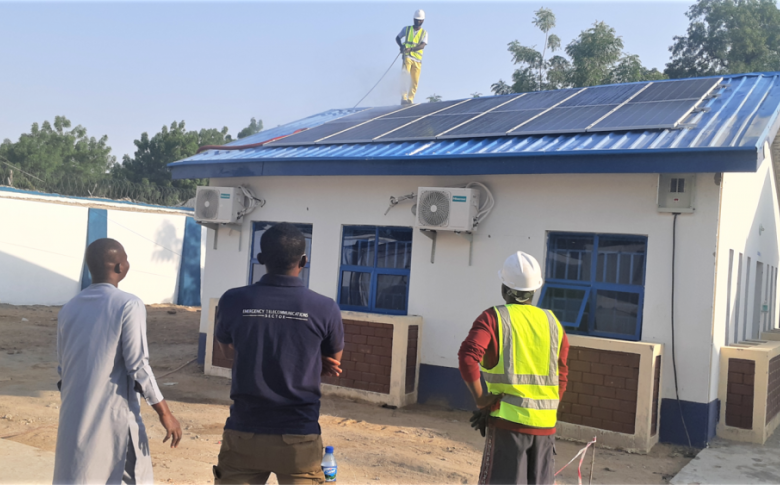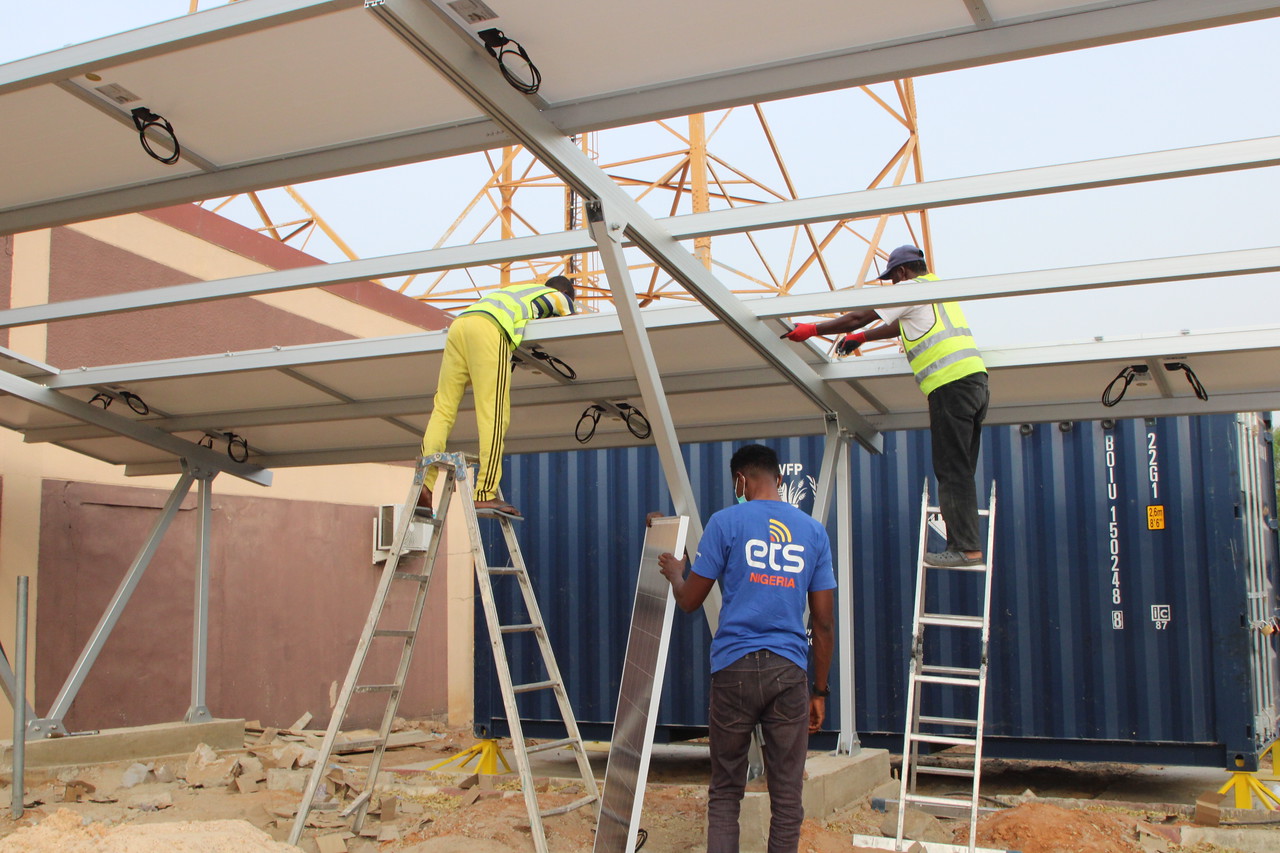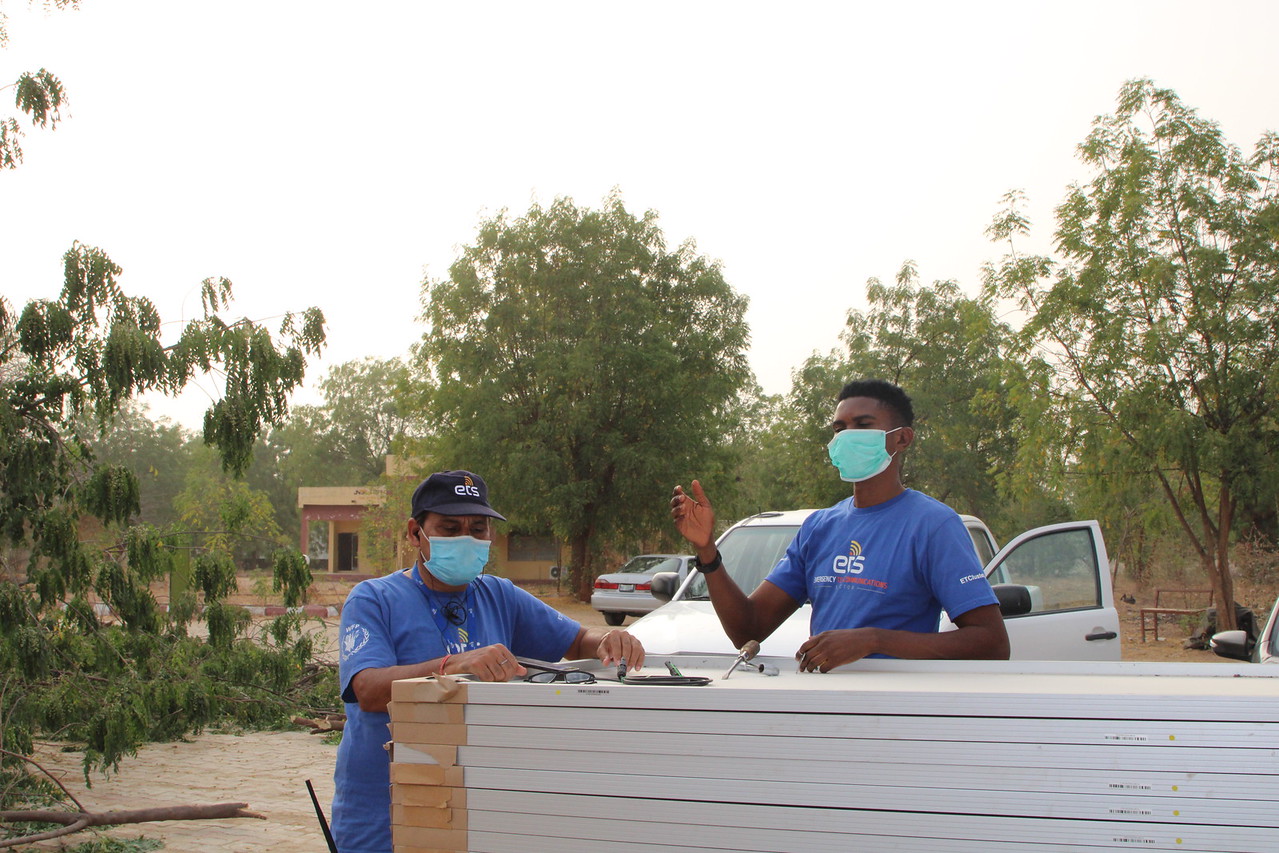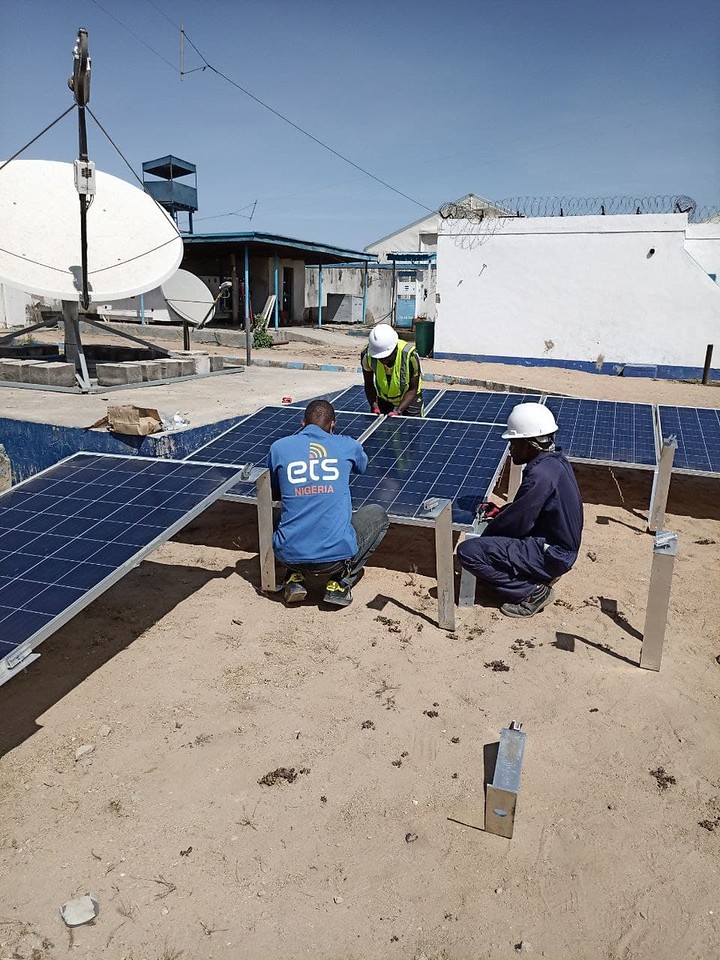Plugging into the sun of North-East Nigeria

Emergency Telecommunications Sector (ETS) services draw on sustainable energy to keep humanitarians connected
By Elizabeth Millership
A double row of reflective squares sit atop a corrugated roof painted the same deep blue as the sky overhead. From the ground below, the upturned face of an ETS technician shields his eyes from the afternoon sun as he inspects the newly installed solar panels. His expression shows it’s a job well done.
The ETS and installation team is in the town of Bama, one of eight locations in North-East Nigeria where humanitarian hubs have been fitted with an innovative hybrid solar-based power system. Harnessing the sun’s energy, the solar panels make the most of Nigeria’s ample sunshine to store and spread power – even at night.
This is good news for the thousands of humanitarian responders operating across the region who rely on access to ETS services around the clock, seven days a week.
The solar panels replace a reliance on fossil-fuel generators – an unstable source of power. Fuel quantities, time allocated to running the generators and breakdown of machinery have regularly impacted on the critical sources of power that light up the lines of communication between humanitarian responders.

“The unavailability of a reliable power source is unimaginable to many. In these deep field locations, it can have a huge impact on humanitarian coordination. Ultimately, ETS services are power driven,” says ETS technician Ahmed Yusuf-Maiinji.
“Over the years, power has been a major challenge for ETS operations in these locations,” says fellow ETS technician, Unity Oware.
That has been the case – until now.
Unity has watched the project grow over several years. “To finally see it completed, in spite of delays, in spite of the COVID-19 pandemic and the logistics around that – it’s very satisfying,” he says.

“Most of all, it’s important for all the humanitarians working in those deep field locations – they will now receive uninterrupted services to pass on life-saving information in places where there is no public electricity grid,” Unity says.
COVID-19 is just one of multiple crises in Nigeria, namely a weakened economy, a growing number of violent attacks across the country as well as the ongoing protection crisis. Humanitarians in North-East Nigeria are operating in a complex and challenging environment. In a region where a third of households have resorted to emergency coping strategies[1], delivering humanitarian assistance to communities in North-East Nigeria is more critical than ever.
In Banki – which hosts the biggest humanitarian hub in Borno state – an extension has been built to accommodate a swelling number of responders in the area. Shola Alabi from the UN’s International Organization for Migration (IOM) is the hub manager. He explains that frequent power interruptions due to generator refuelling and cut-off times affected humanitarian activities requiring connectivity – a huge portion of their work.
“ETS Internet connectivity is now stable and reliable”, Shola says. Over the past two months, he has seen this reflected in glowing feedback from those staying at the hub. “Services have improved – happy that we now have 24/7 connectivity,” one comment reads.

It’s a step forward for both sustainable energy and the delivery of humanitarian assistance. “This constant – and clean – supply of electricity for Internet connectivity and security communications equipment means a better and more coordinated humanitarian response, in a more secure environment,” says Ahmed.
In Bama, the installation team pack up their tools, ready to head back to base. As the sun sets behind them and evening falls, the steady glow of a dozen laptop screens spills through the windows of the humanitarian hub. Tonight, it’s still a hive of activity. Solar power is switched on.
[1] https://reliefweb.int/report/nigeria/essential-needs-analysis-northeast-nigeria-october-2020